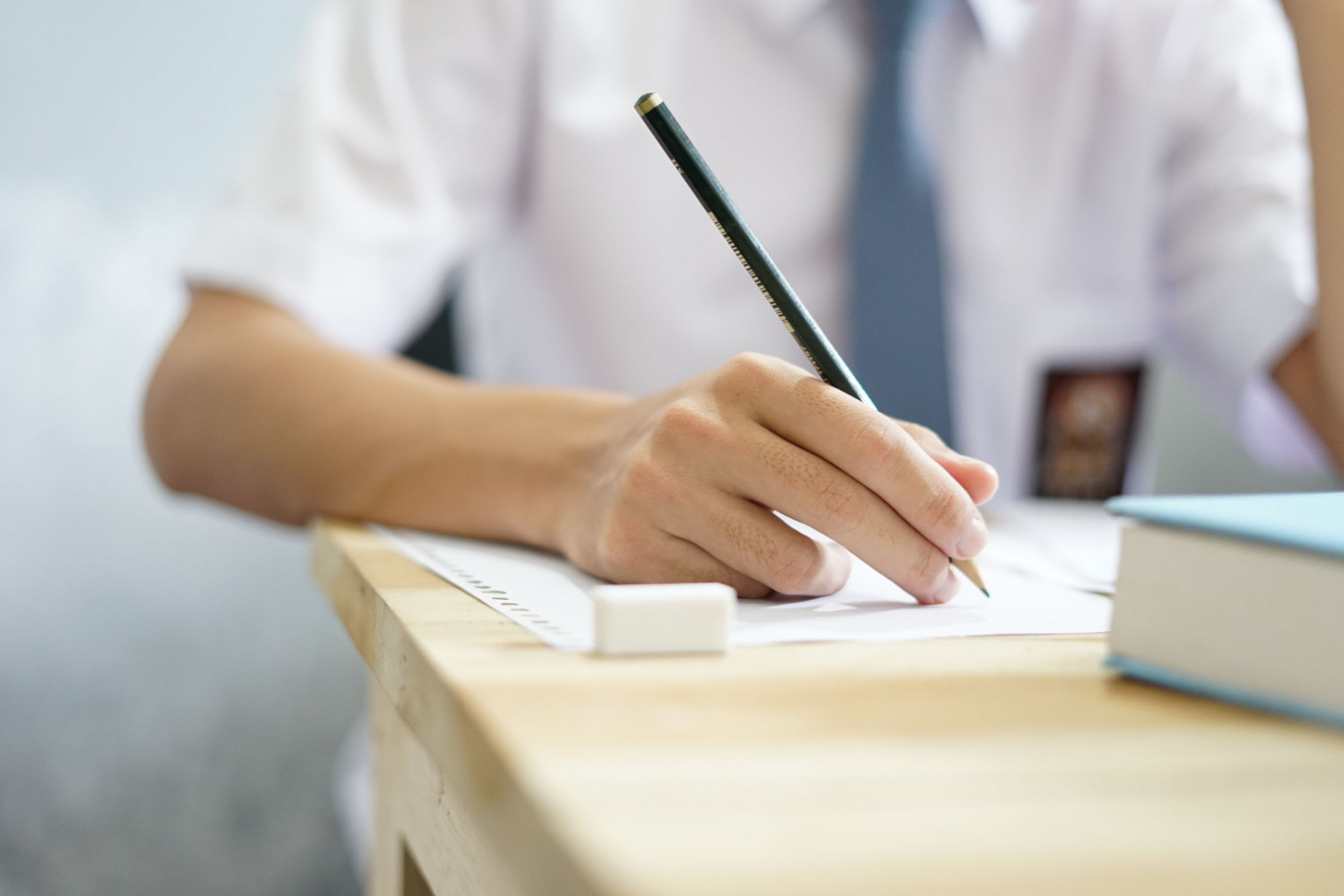‘Merdeka’ curriculum sees increasing popularity
Some 35 percent of schools nationwide fully or partially implementing new curriculum.
Change text size
Gift Premium Articles
to Anyone

W
hen Education, Culture, Research and Technology Minister Nadiem Makarim introduced the Kurikulum Merdeka (Freedom Curriculum) early last year, some observers were unconvinced that it would be compatible with schools nationwide.
But, one year on, the new curriculum has been widely adopted in many schools, with teachers welcoming the curriculum’s emphasis on flexibility in learning structures – despite it being optional, not mandatory, until the end of the 2023/2024 academic year next year.
According to ministry data, over 156,000 schools across the country, ranging from early childhood education institutions all the way up to senior high schools, around 35 percent of schools, had fully or partially implemented the new curriculum as of January.
“[The adoption rate] has far exceeded our target. We did not have a strict target [of how many schools would pick up the curriculum] when we launched it last year, but we expected around 16,000 schools would do so,” head of the education ministry’s center for curriculum and learning Zulfikri Anas said on Thursday.
He said educators were eager to try out the new curriculum due to its flexibility, in addition to focusing on only the most essential learning materials for students.
Unlike the previous 2013 national curriculum which set out a certain amount of learning hours per week for each subject, the Kurikulum Merdeka sets out annual targets, in effect giving teachers the freedom to structure their teaching programs and learning timetables.
“[The 2013 curriculum] forced teachers to deliver lessons according to predetermined targets, which often resulted in teachers rushing through their materials. That’s what we want to avoid in the Kurikulum Merdeka,” Zulfikri said.
When Minister Nadiem launched the Kurikulum Merdeka in February last year, he touted it as an answer to the nationwide trend of learning loss, or the loss of knowledge and skills that students experience when they are not in school, that had taken place during the COVID-19 pandemic.
Read also: Explainer: Learning loss prompts government to introduce ‘Merdeka’ curriculum
A 2022 World Bank report found that remote learning was largely ineffective, with each month of school closures leading to a full month of lost learning. The report also concluded that learning loss could harm the total lifetime incomes of children and youth.
With schools now being able to register to implement the Kurikulum Merdeka for the 2023/2024 academic year, Zulfikri said that the ministry would continue to encourage schools to pick up the new curriculum, ahead of a 2024 target for a 100 percent adoption rate. “But, learning from last year’s experience, we don’t have a specific target [for this year’s adoption rate].”
Not too old to learn
In East Nusa Tenggara’s (NTT) Nagekeo regency, 56-year-old principal of Wudu state elementary school, Bergita Pawe Dede, said that the teachers, some of whom had been there for close to a decade, were all eager to challenge themselves with the new curriculum.
“There are some teachers who struggled more than others [in adjusting to the new curriculum]. But, every [teacher] was excited and motivated to learn about the new curriculum,” she said on Thursday.
Read also: Educators question feasibility of new curriculum
While it was the regency administration’s call for all schools to adopt the new curriculum in August last year, Bergita said teachers had managed to make the most out of the curriculum in the following six months after its adoption.
“Rather than just [a one-way approach] to teaching, [teachers] now more often instruct their students to do more activities […] In mathematics, for example, we would make the kids race each other in calculating the area of the classroom, and the kids are always excited.”
Room for improvement
Despite enthusiasm for the new curriculum, the education ministry is still facing difficulties in ensuring that teachers nationwide can follow the curriculum as intended, says acting Teachers and Education Personnel Director General Nunuk Suryani.
“From what we have seen, there are varying levels [of quality] in the implementation of Kurikulum Merdeka nationwide […] Not all [teachers] have implemented it well, and that’s why it is important for us to do random checks,” Nunuk said during her visit to Wudu elementary school.
When asked how the ministry planned to better facilitate the transition to the Kurikulum Merdeka, Nunuk said that teachers were encouraged to access a mobile app called Merdeka Mengajar (Freedom to Teach), which allowed teachers to get examples of best practices in teaching using the new curriculum.
“But, what’s more important is for teachers to want to be able to learn. Change is, of course, difficult, but the best teachers are those that can adapt,” Nunuk added.









